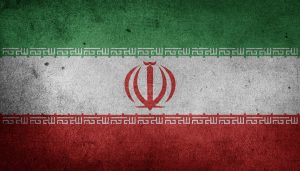Iran’s Sunday announcement concerning its compliance with parts of the 2015 Joint Comprehensive Plan of Action (JCPOA) has been widely misunderstood. For instance, following initial reports out of Iranian news agencies the Associated Press sent out an alert that Tehran “will no longer abide by any limits of its 2015 nuclear deal.” The New York Times ran a headline proclaiming that Iran had announced the “end of nuclear restrictions.”
In reality, while the 2015 deal certainly isn’t in good shape, Iran’s Sunday announcement does not amount to it either leaving the agreement or suspending all restrictions on its civil nuclear program imposed by the agreement.
What Iran did announce, as noted in an official statement, was a fifth step to roll back what it has called “operational restrictions” imposed on its uranium enrichment program. The specific step concerns limitations on the “number of centrifuges” for uranium enrichment Iran is allowed to operate under the 2015 agreement.
The reason that Sunday’s announcement does not represent an end to the entirety of Iran’s compliance with the JCPOA is because the deal’s verification provisions remain in place: inspectors with the International Atomic Energy Agency (IAEA) remain in the country. Moreover, Iran remains in the Nuclear Nonproliferation Treaty (NPT) as a non-nuclear weapons sate, which obliges it not to build nuclear weapons.
The announcement specified that the action was the “fifth step” in reducing its commitments. Tehran has been rolling back its compliance with parts of the JCPOA incrementally roughly every two months since May 2019, when President Hassan Rouhani first announced that Tehran would respond to what it saw as the United States’ unilateral abrogation of its commitments under the 2015 agreement by reimposing sanctions on Iran.
The basic bargain at the core of the Iran deal was that Tehran would submit to verifiable restrictions on its civil nuclear program in exchange for relief from international, U.S., and European Union sanctions imposed as a result of activities of concern. Iran’s position since it began rolling back compliance has been that it would be able to return to the agreement should steps be taken to roll back sanctions — a point that was again emphasized on Sunday. Tehran’s latest statement noted that it was “ready to return to its commitments.”
Iranian Foreign Minister Javad Zarif sought to clarify as much after initial reports began emerging in the English-language press, taking to Twitter to note that the step was “within JCPOA & all 5 steps are reversible upon EFFECTIVE implementation of reciprocal obligations.”
Sunday’s announcement had the unfortunate timing of coming amid heightened U.S.-Iran tensions over the killing of General Qassem Soleimani last week in Iraq. Despite the sound and fury over Soleimani’s death emerging out of Tehran in the days since, Sunday’s announcement was likely unrelated. Nothing in the official Iranian statement suggests a link to Soleimani’s death, in fact, and the tempo of this “fifth” step is largely in line with the previous four steps taken by Iran.
Of course, each of Iran’s steps reduce the value of the technical limits that had been placed on its uranium enrichment program by the 2015 deal. The clearer red lines on Iran’s potential decision to pursue a nuclear weapon would be a move to expel international inspectors or to formally withdraw from the NPT (as North Korea first threatened in 1993 and actually did in 2003). That hasn’t yet happened, but at the rate at which U.S.-Iran tensions are spiraling, Tehran may soon find that its interests are best served by sprinting to the bomb — something that the JCPOA slowed down.
The JCPOA may well be on its last legs and functionally hollowed out insofar as restrictions on Iran’s uranium enrichment capabilities go, but it’s not dead just yet.

































